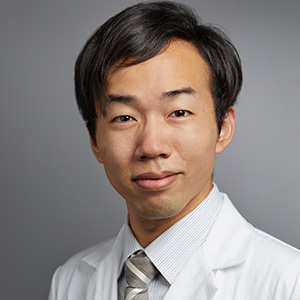Training in the Era of Artificial Intelligence

Electronic health records (EHR), along with the rapid refinement of artificial intelligence (AI) and machine learning algorithms, are increasingly challenging society to redefine the role of physicians. The widespread integration of AI in clinical medicine may not be a distant future parable as AI has outperformed the world champion in the highly-nuanced game of Go in 2015, which surpassed an expert prediction of this occurrence by a decade. What are some implications of this rapid encroachment of AI toward human intelligence for us trainees? It creates all the more emphasis on humanism and learning to recognize model limitations.
The potential for AI as a clinical decision support tool is enormous. Radiographic images can be interpreted with a fair accuracy already, and dynamic images from echocardiogram are starting to be deconstructed by the algorithm. Postoperative risk prediction after cardiac surgery may be enhanced by the use of high-dimensional data from EHR in ways fundamentally different from the Society of Thoracic Surgeons risk models based on structured registry data. Image recognition may one day mimic "eye-ball test" to immediately recognize patients who are not likely to tolerate an operation. In the near future, data from variety of sources may stream into the algorithm to provide the most likely diagnosis, risk of adverse events or the most accurate interpretation of diagnostic imaging, and make recommendations on guideline-directed therapies. Then, "Could artificial intelligence make doctors obsolete?" If the doctors we aspire to be are solely an information-gathering, diagnosis-making therapy-prescribing entity, then AI may have the potential to outperform "doctors" one day. However, we are more than a profession defined by such tasks.
Physicians nurture trust in the longitudinal relationship with patients with chronic diseases, gain the trust of patients to operate on their body, or realign therapies to patient's individual goals that may differ from what guideline recommends. Being a credible interpreter and conveyer of information in the way that suites individual therapeutic relationship is where we excel and what is expected of us. AI technology may allow us to revisit this aspect of patient care as a defining feature of physicians, not auxiliary skills that only select physicians master. Computer-based care in the era of EHR has taken away the time we spend speaking to and connecting with the patients. AI technology may allow us to reclaim this human relationship, not exclusively via delegation of tasks, but through redefining the expectations for physicians to act and treat patients as human physicians. Although clinical knowledge and certain diagnostic skills may no longer be proprietary to those who underwent years of medical school and residency, the art of medicine will always be.
Realistically speaking, the models still have many hurdles to overcome, one of which being the historical biases that live in the existing data. Claims data have the tendency of infrequently coding prevalent comorbidities, such as hypertension, in patients with admissions for high acuity conditions. This is demonstrated in risk models based on administrative data that showed hypertension as a comorbidity associated with reduced risk of adverse events. Similar bias may apply to the historical treatment differential by the patient gender and ethnicity. Solely relying on models trained on such historical data can propagate these biases in unintended ways. Therefore, the expression of Robert M. Califf, MD, MACC, and Robert A. Rosati, MD, FACC, in 1981, "proper interpretation and use of computerized data will depend as much on wise doctors as any other source of data in the past," will likely continue to be relevant in the era of AI. As have been in the past, we will be expected to become "wise doctors" who can judiciously use the tools at our disposal, whether it is a stethoscope or an AI.
This article was authored by Makoto Mori, MD, integrated cardiothoracic surgery resident at Yale University in New Haven, CT.